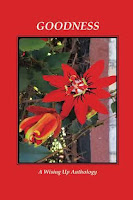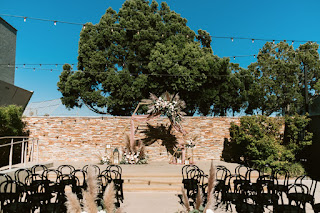 |
Scotts Mills, September 12, 2019
|
One of my former journalism students sent me a piece a day ago about those fighting fighting to save Scotts Mills, OR, from the encroaching Beechie Creek fire that had destroyed nearly 200,000 acres in the foothills of Mount Hood. Wildfires surrounded the region, forcing evacuations of the entire town. Wildfires surrounded the region, forcing evacuations of the entire town.
I lived in Scotts Mills as a girl. Here's what I wrote about that town that after I finally went back in 2007. I visited a second time two and a half years ago when I went to Oregon for the total solar eclipse.
And the Angels Sing
For decades I’d planned to return to Scotts Mills. I’d
learned something there once, but couldn’t quite recall what it was. At troubled times, I’d muse and mull, but
that will-o’-the-wisp memory flickered just beyond my perception.
At the close of WWII, my family, like many others, fled Los Angeles in the paranoia
over potential nuclear submarine attacks.
They headed for Oregon’s Willamette Valley, miles from the Pacific.
For three years we lived in this hamlet of fewer than 200
people, in our two-story Victorian house with a wooden staircase, a root cellar
and a barn. In l948 we scurried back to Los Angeles. My family bitterly regretted their hiatus
from city life. I hadn’t wanted to
leave.
Grandma had grumbled about the dark clouds, fog, and drizzle
that cloaked the area. Tracking the
weather on her kitchen calendar, she claimed the sun peeped through the mist only
nine days one entire summer. Daddy, who
played cornet in the sweet swing of style of Bunny Berrigan, rounded up a trio
to play at local dances, privately grousing about having to include a schmaltzy
accordion for keyboards, which didn’t seem quite right on And the Angels Sing, his
signature song.
Mama lamented her suburban coffee klatches, and on weekends
would bribe my big sister and me into playing Chinese checkers with
heavily-sugared cups of her favorite beverage.
Grandpa reveled in growing parsnips and endive and teasing my little
brother with garden snakes, but even he muttered about having to drive seven
dang miles to Silverton to purchase his Old Crow from the state liquor store.
For me, a curious 8-year-old, Scotts Mills was Wonderland,
Oz and NeverNeverLand all rolled into one.
I picked wild iris, blackberries, and crab apples. I could earn a dime for a comic book by taking
Grandma’s shopping list and wicker basket to the general store for items she’d
forgotten to buy at the Silverton Safeway.
I could spot what Daddy said was the Andromeda cluster at night, and he
promised when winter came we might see the aurora borealis. I could even earn money at the town store's pharmacy by stripping cascara bark from trees along Grandview Street.
I learned something new every day that first summer. Grandma taught me how to dogpaddle in the dam
and to ignore my classmates’ claims of spotting cousins of the Loch Ness
monster in its murky waters. Daddy taught me always to wear a long-sleeved
flannel shirt on the mornings when it was my turn to carry wood to the box next
to the kitchen stove. Mama taught me to
watch for broken glass when I waded in Silver Creek, and some sneaky opening
Chinese checker ploys. Grandpa taught me
how to identify poison oak and make vinegar compresses, but only after I came
home blistered and weeping.
When school started, I skipped third grade, since my reading
scores indicated that I could do fourth grade work. I had missed multiplication
and long division, so my teacher, Miss Magee, spent endless after-school hours
helping me understand times tables and what to do with remainders.
The three-room schoolhouse lumped grades three through five together. Younger and smaller than my classmates, I was
shy and nervous. I sat with grade four
in the middle row, where classmates on each side could jeer I sucked my thumb,
chewed on the ends of my pigtails, and gnawed my pencils. They called me Terri Termite until Miss Magee
held a pointed discussion on The Golden Rule. I worshiped Miss Magee, and studied hard so
she would be proud of me.
I learned outside of school, as well. The town had been founded by Quakers, and
just a few blocks downhill from our home on Grandview
stood a Friends Church, built in l892. Every Sunday I would trudge off to Sunday school,
intent on earning my first New Testament, offered as a prize for four months of
perfect attendance. I craved the
pocket-sized book with the red leatherette covers, so I would set out even on
rainy mornings, ignoring Grandma’s predictions that I’d catch a cold or the dreaded
flu.
In the basement, we would listen to missionaries tell exotic
tales of their work in East Africa. “I’m going to be just like them,” I’d tell my
family. “I’ll see jungles and monkeys
and teach children how to read.” From
the missionaries too I had learned how to pray for others, and not just
myself. I prayed that my classmates
would grow in grace enough to stop teasing me and other vulnerable children,
such as the boy with the hare lip.
After we returned to Los Angeles, I got caught up with
junior high and high school, boyfriends, youth groups at a variety of churches,
and not too much later, even marriage and a child of my own. But the values I learned from Miss McGee and
the Friends Church remained with me, perseverance
and discipline, compassion and social justice.
Finally, in spring 2007 I was asked to be the keynote
speaker at the Oregon School Counselors Association annual conference in Bend, Oregon
in October. The slated theme was “Global
Vision, Local Action.” I’d been invited to talk about my adventures all over
the world with the Peace Corps. I had
not returned to Oregon
since l948. When I looked on the map I saw that Scotts Mills was just a few
hours drive from the conference center.
I began making plans.
Idiscovered that the Scotts Mills
Friends Church
had a website, so I wrote, mentioning how the church and Miss Magee had
influenced me. The webmaster knew the
Magee family and put me in touch with the children of Barbara McGee Hays, who
had died of cancer in l972. Soon I had
letters from them, saying they would be at the church when I came in
October.
I drove over early from the motel in Silverton and sat
quietly in the rear pew. The pianist
played a few quick practice notes, and I recognized the song. I reached for the songbook before me, and
flipped through to find the old hymn, Be
Still My Soul.
I opened the Bible, and found the verse that had eluded me. “Be still, and know that I am God.” Psalm 46:10.
I smiled. It was so
simple. I relaxed and the words “center
down” popped into my head, the long forgotten but basic premise of the Friends Church.
What I had learned as a child was to clear my mind of chatter so that I
could be receptive to a spiritual message.
After the minister arrived, he approached me and asked if I
were the woman who had contacted the webmaster.
He invited me to say a few words when the time arrived for
offerings. “We don’t always have much
money to offer,” he explained, “but we always ask if somebody has something
personal to offer.”
When it came time, I raised my hand and stood. “Who is this strange lady?” he asked,
smiling. “Not so strange,” I answered. When I got to the lectern I looked out at the
congregation. “The last time I stood on
this stage was Easter, l948,” I began, “nearly sixty years ago.”
After the service Miss Magee’s grown children chatted with me.
Amazingly, my fourth grade teacher’s son had done some international missionary
work in Tashkent, Uzbekistan and knew the Peace Corps director who had been
there when I had conducted an international workshop on HIV/AIDS prevention
there in 2003. We agreed to remain in
touch.
I toured the town’s museum later that day, and chatted with
one of my former classmates who lived across from it. He remembered how the children teased. When I learned to center down, I found I no
longer needed to chew my pencils. I hope
the boy with the hare lip learned to ignore the taunts.
As I drove back to Silverton I found myself humming my
father’s favorite, And the Angels Sing.
 |
Bunny Berrigan
|
 Christmas night I plan to tune in to see the 2020 Christsmas special of "Call the Midwife," a series I've watched from the start. And I may want to be reminded of what's good in life, so will read another chapter of Universal Table's new essay collection, Goodness. My story, "Grandma Fang's Clowder of Kittens," is in this anthology.
Christmas night I plan to tune in to see the 2020 Christsmas special of "Call the Midwife," a series I've watched from the start. And I may want to be reminded of what's good in life, so will read another chapter of Universal Table's new essay collection, Goodness. My story, "Grandma Fang's Clowder of Kittens," is in this anthology.





























